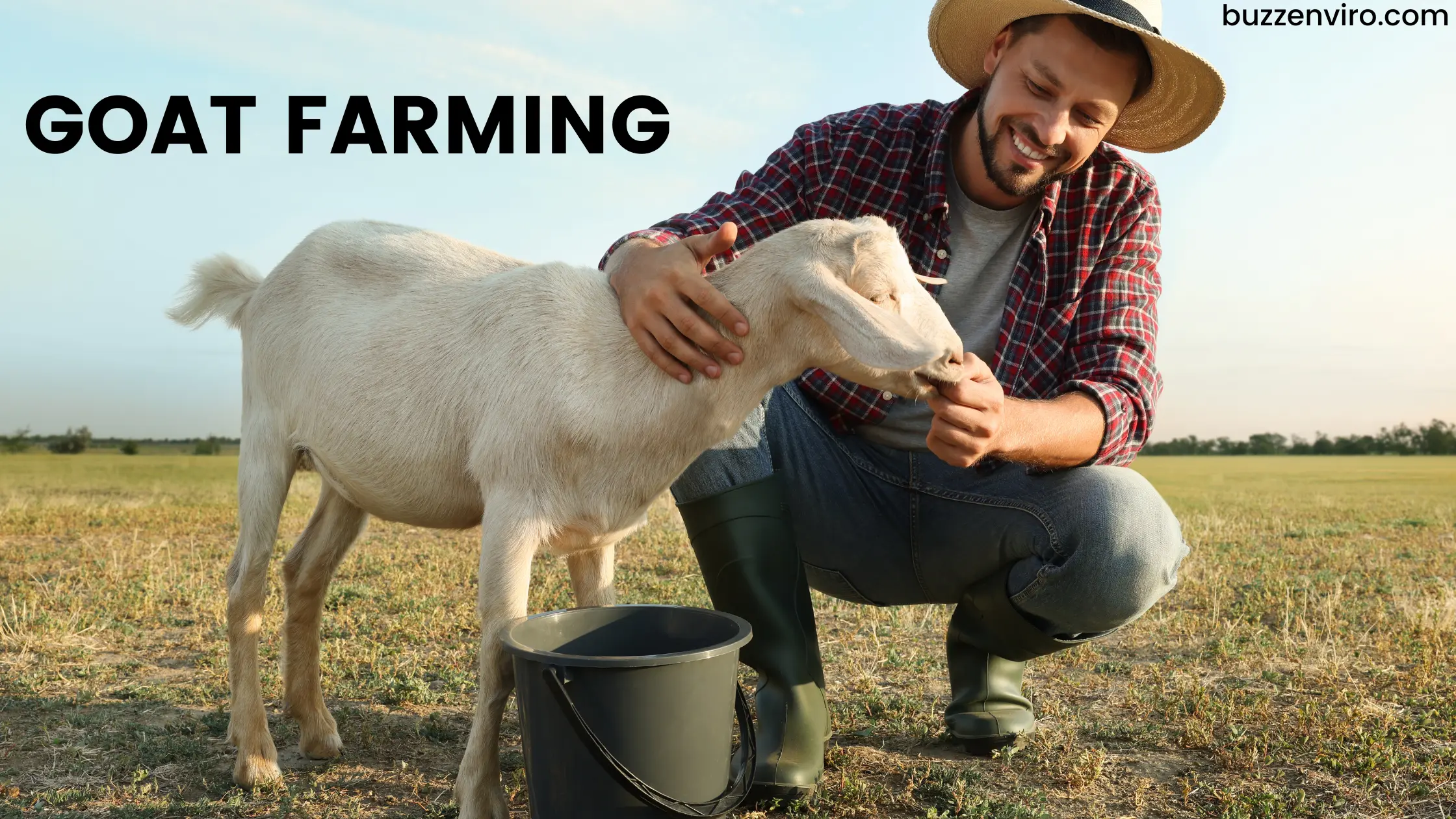Agriculture Goat farming has emerged as a profitable and sustainable agricultural practice, especially in regions like India. With their adaptability to diverse climates and minimal resource requirements, goats offer a viable option for farmers seeking to enhance their income and contribute to rural development.
What Are Goats Good For?
Goats are versatile animals that provide multiple income streams through meat, milk, fiber, and skin. This diversification helps farmers mitigate risks associated with market fluctuations. Goat meat, known as chevon, is lean and low in cholesterol, making it a healthy choice for consumers. Additionally, goat milk is easier to digest than cow milk due to its smaller fat globules and natural homogenization. It also has anti-fungal and anti-bacterial properties, which can be beneficial for treating certain health conditions.
Benefits of Agriculture Goat Farming
1. Economic Viability:
Goats are known for their rapid growth and high reproductive rates, making them a profitable investment. They require less space and feed compared to larger livestock, reducing overall costs.
2. Diverse Products:
Goats provide multiple income streams through meat, milk, fiber, and skin. This diversification helps farmers mitigate risks associated with market fluctuations.
3. Environmental Sustainability:
Goats are efficient at converting low-quality forage into high-quality products, promoting sustainable land use. Their grazing habits can also help control invasive plant species, maintaining ecological balance.
What Does Goat Provide us?
Goat farms offer a multitude of benefits beyond meat and milk production, making it a versatile and sustainable agricultural practice. Here are some additional advantages:
1. Raise Your Own Meat
By raising goats, farmers can produce their own meat, ensuring a fresh and cost-effective supply. Goat meat, known as chevon, is lean, flavorful, and in high demand in various markets. This self-sufficiency reduces reliance on external meat sources and enhances food security.
2. Produce Milk

Goat milk is easier to digest than cow milk due to its smaller fat globules and natural homogenization. It is non-allergic compared to cow milk and has anti-fungal and anti-bacterial properties, making it beneficial for treating certain health conditions. Additionally, goat milk can be used in dairy farming with various dairy products like cheese and yogurt, catering to diverse consumer preferences.
3. Produce Soap
Goat milk is a key ingredient in many artisanal soaps due to its moisturizing properties and rich nutrient content. Farmers can create and sell goat milk soap, adding value to their products and tapping into the growing market for natural skincare items.
4. Produce Fiber
Certain goat breeds, such as Angora and Cashmere goats, produce valuable fibers like mohair and cashmere. These fibers can be spun into yarn and sold at a premium, providing an additional income stream for farmers.
5. Clear Land
Goats are natural browsers, preferring to eat shrubs, bushes, and weeds. This behavior helps control invasive plant species and promotes the growth of native plants. Additionally, goat manure is rich in nutrients and contributes to the overall fertility of the soil. The constant movement of goats across the land also prevents soil compaction, which can be detrimental to plant growth and soil health.
6. Use Them as Pack Animals
Goats are strong and sure-footed, making them excellent pack animals. They can carry loads across rough terrains, assisting in transportation and reducing the need for mechanized vehicles in certain areas.
7. Use Their Dung as Fuel
Goat dung is an excellent source of fuel. It can be dried and used as a renewable energy source for cooking and heating, especially in rural areas where access to other fuels may be limited.
Incorporating these practices can help ensure the health and productivity of goats, leading to a successful farming venture.
Meat Goats: From Birth to Slaughter
Raising meat goats involves several key stages:
1. Breeding:
Select healthy, high-quality breeding stock to ensure strong offspring.
2. Gestation and Birth:
Goats have a gestation period of approximately 150 days. Providing a clean, safe environment during kidding is essential.
3. Weaning:
Kids are typically weaned at 8-12 weeks, depending on their health and growth.
4. Feeding and Growth:
Post-weaning, focus on a balanced diet to promote rapid growth and muscle development.
5. Health Management:
Regular health checks, vaccinations, and deworming schedules are essential to prevent diseases. Maintaining clean living conditions and proper waste disposal further supports goat health.
6. Slaughter:
Goats are typically ready for slaughter at 6-12 months, depending on the desired market weight.
Main Products Goats Provide
- Meat: Goat meat is lean, flavorful, and in high demand in various markets.
- Milk: Goat milk is used for direct consumption and in products like cheese and yogurt.
- Fiber: Certain breeds produce valuable fibers like mohair and cashmere.
- Skin: Goat skin is used in leather products, known for its softness and durability.
Benefits of Owning Goats in your Home
1. Low Maintenance:
Goats are relatively easy to care for, requiring less attention and resources compared to larger livestock.
2. Adaptability:
Goats can thrive in various environments, making them suitable for diverse farming conditions.
3. Economic Diversification:
Owning goats allows farmers to diversify their income sources, reducing financial risks.
Also Read:- Difference between Goat and Sheep
What Does Rosehill Farm Feed Its Goats?
While specific feeding practices can vary, a balanced diet for goats typically includes:
- Forage: High-quality grasses and legumes.
- Concentrates: Grains and protein supplements to support growth and milk production.
- Minerals and Vitamins: Access to a mineral block or loose minerals to ensure nutritional balance.
- Fresh Water: Constant access to clean, fresh water is essential for health and productivity.
Note:
While goat farming for meat production has its benefits, we want to make it clear that we do not support animal cruelty in any form. Ethical treatment of animals is of utmost importance, and we encourage sustainable and humane farming practices. Becoming vegan is a personal choice, and we respect everyone’s right to choose their lifestyle. What we stand for is kindness, respect, and compassion towards all living beings.
